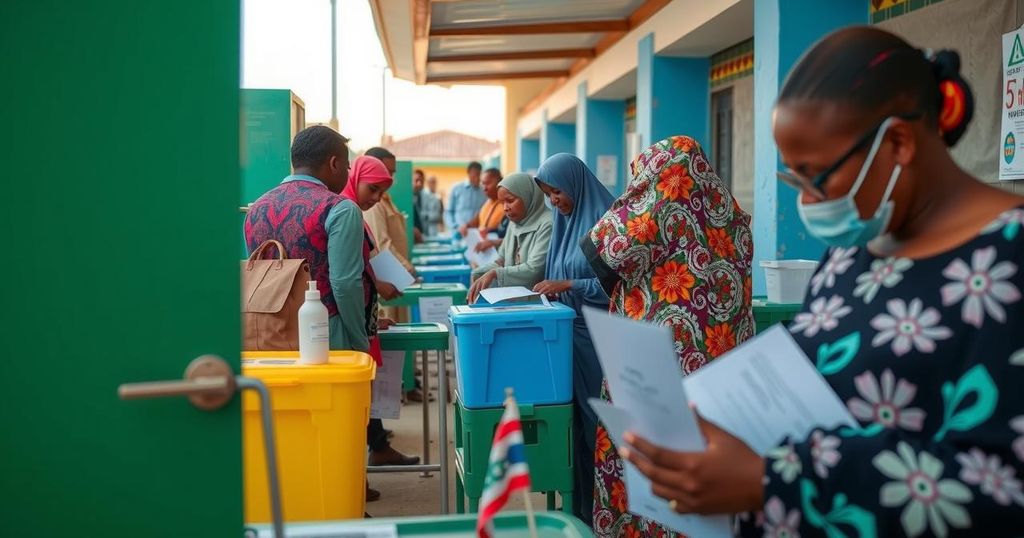Voting Underway in Somaliland’s Presidential Election Amid Political Tensions

Voting is currently taking place in Somaliland for a presidential election that was delayed for two years due to political tensions and economic challenges. President Muse Bihi Abdi seeks reelection, while opposition candidates push for reforms. Voter turnout is projected to exceed one million across various polling stations, reiterating the local desire for job creation and economic stability.
Voting has commenced in Somaliland, a self-declared republic in Somalia, amidst political tensions in the Horn of Africa. The presidential election, significantly delayed by two years, is critical for the region, with over one million voters expected at more than 2,000 polling stations. Incumbent President Muse Bihi Abdi of the ruling Kulmiye Party aims for reelection while opposition candidates, including Abdirahman Mohamed Abdullahi of the Waddani Party and Faisal Ali Warabe of the Justice and Welfare Party, offer alternative visions for a stronger economy and democratic reforms. Voter turnout indicates local expectations for economic improvement and job creation. In the backdrop of this election is Somaliland’s long quest for international recognition since declaring independence from Somalia in 1991. This region has managed to establish its own government and maintain a degree of political stability, contrasting sharply with the ongoing instability in Somalia. Recent diplomatic agreements with Ethiopia, aimed at enhancing economic access, have heightened tensions with Somalia, with accusations that Ethiopia undermines its territorial integrity.
Somaliland proclaimed independence from Somalia in 1991 during a period of civil unrest. Despite lacking international recognition, it has developed a functional government and stable economic structures, setting it apart from the broader turmoil in Somalia. Over the years, Somaliland has engaged in multiple presidential elections, with the latest contested amidst local demands for economic progress and political reform. The current election is particularly crucial given the region’s delicate balance with neighboring Somalia and Ethiopia, and it follows a delay attributed to economic challenges.
The presidential election in Somaliland represents a pivotal moment for the region, with citizens hopeful for economic advancements and political stability. The election, featuring candidates with contrasting approaches and visions for the future, underscores the importance of governance in a territory striving for international acknowledgment. The outcomes may influence both local and regional dynamics, particularly the relationships between Somaliland, Somalia, and neighboring Ethiopia.
Original Source: apnews.com







